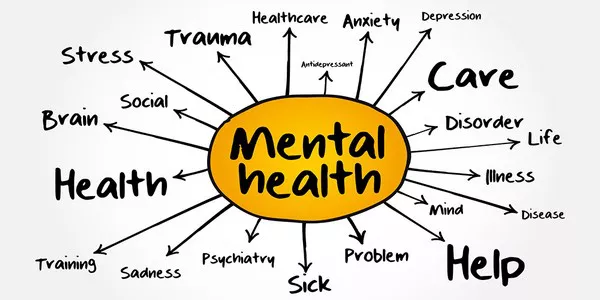In the wake of the COVID-19 pandemic, the United Kingdom has grappled not only with the physical health implications but also the profound mental health effects that have surfaced since the declaration of the pandemic in March 2020. A closer examination reveals that existing mental health disparities in the UK have been exacerbated, leading to heightened distress and loneliness among various demographic groups. This article delves into the critical question of whether the pandemic has widened the mental health gap in the country.
Vulnerable populations with pre-existing mental health conditions have borne the brunt of this crisis, with their mental well-being deteriorating significantly during the lockdown periods. Simultaneously, the economic fallout from the pandemic has disproportionately impacted individuals with lower incomes, further exacerbating existing inequalities.
Recognizing the complexity of mental health repercussions and the growing disparities resulting from the pandemic, researchers emphasize the necessity for further investigation. Future studies must concentrate on preventive measures, early interventions, and the development of tailored solutions for different population groups, all within the evolving landscape of socioeconomic disparities and deteriorating mental health indicators.
The study at the heart of this exploration employed a comprehensive approach, blending online surveys with focus group discussions (FGDs). These research tools aimed to gain a deep understanding of the nuances surrounding mental health experiences during the pandemic.
FGDs played a crucial role in uncovering perspectives that quantitative survey data alone couldn’t capture. They explored a wide range of factors, including disparities in experiences of inequality, socioeconomic variations, and resilience and coping mechanisms related to mental health. This approach facilitated a profound exploration of individual viewpoints, expediting policy responses to emerging issues.
Participants in the study were carefully engaged through intermediary organizations and received thorough briefings before granting their consent. Discussions were conducted virtually, with findings meticulously transcribed and subjected to thematic analysis, overseen by experts in public mental health and qualitative research.
The qualitative insights gleaned from FGDs were then harmonized with the quantitative results obtained through surveys. This integration provided a comprehensive understanding of how the pandemic has impacted mental health across various demographic segments in the UK, underscoring the value of combining quantitative and qualitative methods when addressing the experiences of diverse populations.
The findings of this study shed light on the profound impacts of socioeconomic inequalities during the pandemic. Across multiple survey waves and FGDs, the research unveiled the extent of the crisis:
In Wave Two (April 2020), financial worries and job losses were identified among 2,221 participants, highlighting the detrimental effects of socioeconomic inequalities on mental well-being.
Wave Four (June 2020) revealed divergent mental health experiences as lockdown measures eased, with 53% of 4,382 participants reporting anxiety.
Wave Six (August 2020) delved into resilience and coping strategies among 4,584 participants. Coping mechanisms included seeking solace in nature and fostering familial connections, often described as cathartic.
Focus group discussions universally underscored the pandemic’s impact on pre-existing inequalities, with particular strain observed among self-employed individuals, small businesses, and the youth. Concerns about the exacerbation of inequalities due to the UK’s departure from the European Union were prevalent, heightening financial insecurities and feelings of powerlessness. The surge in first-time callers to mental health support lines revealed a widespread emotional impact, indicative of a potential population-level mental health crisis.
Participants unanimously called for increased funding to address social determinants of health and well-being. Concerns also centered on the lack of clarity and coherence in government communication, which added stress and confusion to an already tense environment.
Reopening society prompted varied experiences and concerns. Ethnic minorities and older adults faced pressure to resume social interactions, coupled with fears of diminished protection and increased vulnerability post-lockdown. Children expressed preferences for online education, raising questions about their adjustment to mainstream schooling.
Nature and outdoor activities emerged as crucial coping mechanisms during lockdowns. The benefits of working from home were extolled for reducing financial and emotional strain, though concerns arose regarding premature social interactions.
Online and offline connections with family, friends, and the community were deemed essential for emotional stability. However, worries persisted regarding high-risk social interactions and the recklessness of others.
The study underscored the importance of community connectedness and mutual support groups as a countermeasure to feelings of powerlessness and overwhelm, providing a beacon of hope in navigating the manifold challenges of these unprecedented times.
In conclusion, the COVID-19 pandemic has unquestionably exacerbated mental health inequalities in the United Kingdom, with a profound impact on various demographic groups. Understanding these complexities is essential as policymakers and healthcare professionals work to address the mental health challenges that continue to unfold.

